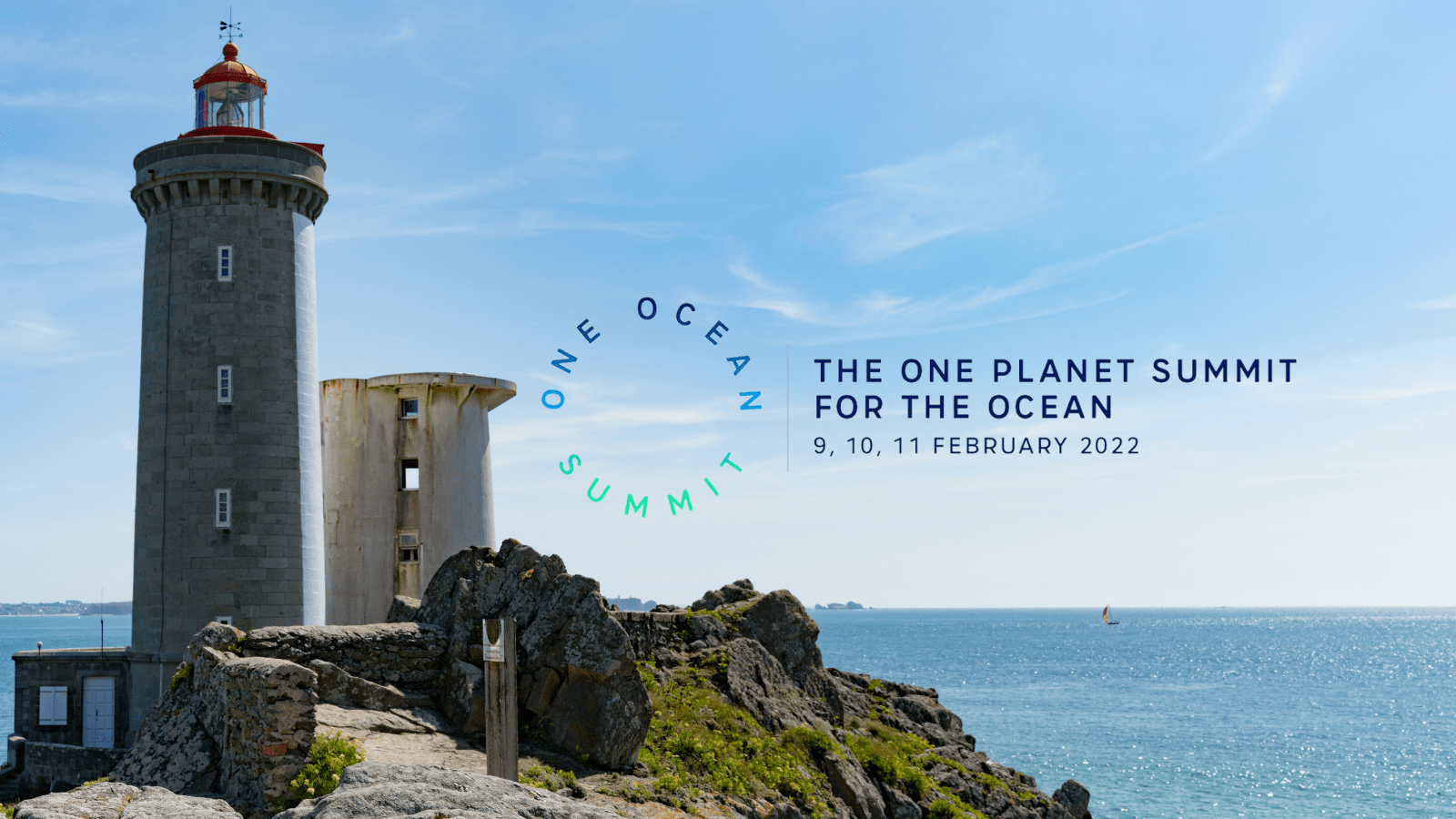At the last IUCN World Conservation Congress, held in September 2021 in Marseille, the President of the French Republic announced the organisation of an international “One Ocean” summit, to be held from 9 to 11 February 2022 in Brest.
Its objective: to bring together the world’s heads of state and government, NGOs and parliamentarians to take global initiatives for better ocean governance, the protection of marine ecosystems, the fight against pollution, particularly plastic pollution, and the fight against climate change.
The close links between the ocean, climate and biodiversity require rapid action. Climate change cannot be addressed without considering the evolution of the ocean, which is its main regulator: 93% of the Earth’s heat gain over the last three decades has been absorbed by the ocean. The risks to biodiversity are also immense: it is estimated that coral reefs, which represent only one thousandth of the ocean’s surface, concentrate 30% of marine species: with their disappearance, the whole system collapses. This represents not only the disappearance of species, but also of shallow tropical water food reserves, on which almost 500 million human beings depend today.
The One Ocean Summit was an opportunity to engage with the ocean and the crucial issues at stake, given that it represents 70% of our planet’s surface.
On the occasion of the high-level segment of the One Ocean Summit held on Friday 11 February, the President of the French Republic, Emmanuel Macron, announced the commitments that France will make during the next phases of the 2022 international agenda.
- Promoting sustainable fisheries, in particular at the 12th WTO Ministerial Conference in Geneva, to reach an agreement to eliminate public subsidies that contribute to overfishing and illegal fishing. This treaty would be the first biodiversity agreement in the WTO framework and would synchronize the biodiversity, climate, and trade agendas for the first time. The upcoming FAO Committee on Fisheries will also be an opportunity to raise the level of ambition on sustainable fisheries of Regional Fisheries Management Organisations (RFMOs), which France will support in this process. State action at sea, the French maritime police, will be Europeanised with the support of the European Commission to better verify, control and sanction illegal fishing activities.
- The protection of cetaceans shall be strengthened, in particular through measures against strandings of cetaceans in the Bay of Biscay, through the continuation of scientific observations of dolphins and public investment in penguin devices.
- Tackling plastic pollution by launching formal negotiations for a binding international treaty on plastics at UNGA 5 in Nairobi at the end of February. France and India have already committed to eliminating single-use plastics. Pollution starts upstream, every human being, on the banks of a river, of a stream, is responsible for it.
- The establishment of global ocean governance to protect no-go areas and achieve a “universal, operational and effective” treaty on the high seas at the BBNJ negotiations that began 10 years ago and will be held in March in New York. In this regard, the President has launched a coalition with the President of the European Commission to support the adoption of this agreement.
- Developing knowledge to protect the deep sea. France insists that scientific knowledge is the sine qua non for seabed protection and has announced the launch of major exploration missions to the seabed – and the poles – “We cannot protect what we do not know”.
- Protect the planet by pursuing a 30×30 target. (30% protection of the planet by 2030) launched in January 2021 at the One Planet Summit in the post-2020 framework to be adopted this summer at COP15. The President called on States to join the High Ambition Coalition for Nature and People, which currently includes 83 countries, and to make very clear commitments on the protection of MPAs. On the French side, the 30% target was exceeded following the ratification of the 10 February decree extending the French Southern Territories nature reserve. Strong protection has also been doubled to 4% in 2022 and the 10% target has been delayed to 2030.

Comments are closed